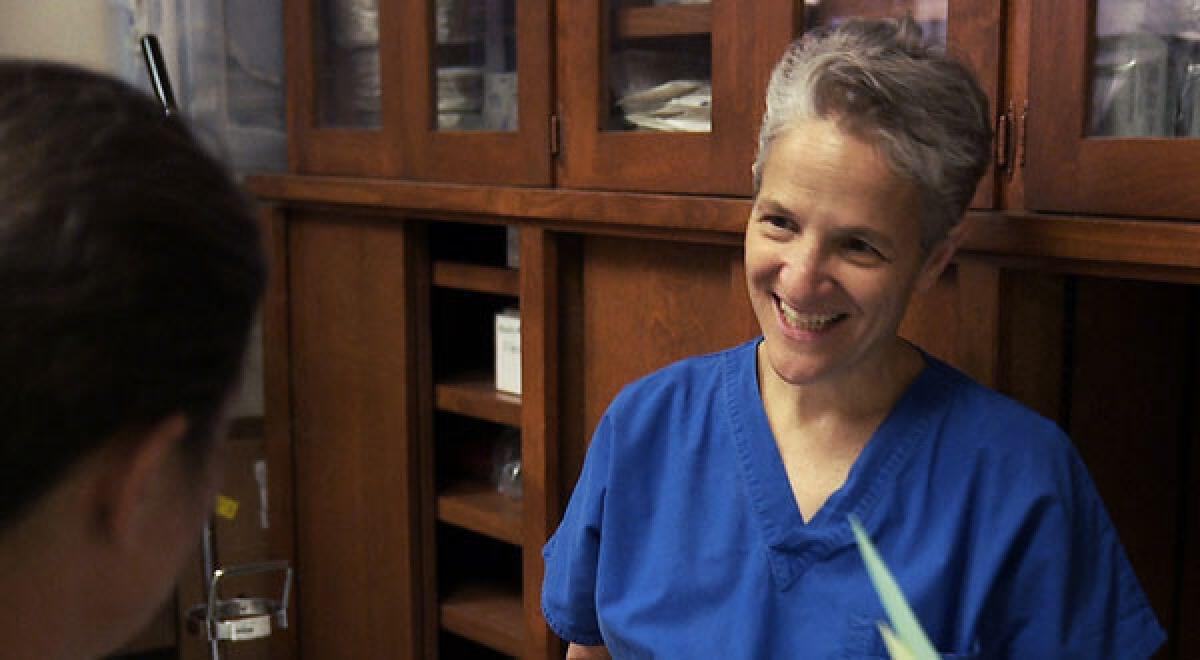New Mexico medical board clears abortion doctor of negligence

An Albuquerque doctor, accused by an antiabortion group of gross negligence for her handling of a late-term abortion, was exonerated by New Mexico officials.
The New Mexico Medical Board cleared Dr. Shelley Sella of any impropriety in how she handled a case involving a New York woman whose uterus was ruptured during a late-term abortion and she was taken to a hospital.
Sella, a former colleague of slain Kansas abortion doctor George Tiller, is one of only a few physicians in the country who still openly perform abortions in the third trimester. She works at the Southwestern Women’s Options Clinic.
“I think this outcome shows that the process works,” Molly Schmidt-Nowara, the lawyer for Sella, said in a telephone interview with the Los Angeles Times. “This is great news for the women of New Mexico. I think it is a great thing for the women of this country.”
The complaint against Sella was brought by Operation Rescue, an antiabortion group based in Kansas. The group on Thursday condemned the New Mexico ruling.
“All along we faced an uphill battle with a medical board that expressed views that were in support of third trimester abortions. Today’s decision to protect abortionists and their below-standard procedures that endanger women and violate the law only serves to place more women at risk,” said Cheryl Sullenger, a senior policy advisor for the group.
Late-term abortions, particularly in the final trimester, remain controversial. They are allowed in cases in many places, including New Mexico, but just four clinics in the nation perform the procedure. Experts in the Sella case estimated that third-trimester abortions are very rare, Schmidt-Nowara said.
The procedure has led to violence from some elements of the antiabortion movement. Dr. Tiller, the medical director of one of the few clinics that performed the procedure, was frequently targeted by protesters and his clinic was firebombed in 1986. He was shot in both arms by an antiabortion activist in 1993 and was assassinated in 2009 while serving as an usher during Sunday services at his church in Witchita. His assailant, antiabortion activist Scott Roeder, has been sentenced to life in prison.
In the New Mexico case, a New York woman, 26, sought the abortion in her 35th week of pregnancy after learning the fetus had very serious brain anomalies, according to testimony in the case. Supporters of abortion rights say an abortion that late is usually limited to women whose health, or the health of the fetus, is in question. Antiabortion activists argue the procedure that late is a danger to mothers and painful for the fetus.
The woman went to Southwestern Women’s Options Clinic for the late-term abortion. During the procedure her uterus ruptured and she was taken to a hospital. Anti-abortion groups said they became involved after hearing the 911 call, which they got through an open-records request.
In a prepared statement emailed to reporters, the clinic praised the board’s ruling.
“We applaud the decision of the NM Board of Medicine. In response to complaints by out-of-state anti-abortion extremists, the board spent 20 months conducting a thorough investigation of our medical practices,” the clinic stated.
“Abortion is the safest surgical procedure in America, and an unfortunate complication can be appropriately managed, precisely because it is legal,” it said. “The importance of our work to the families and women of New Mexico must not be jeopardized by extremists.”
ALSO:
Duke fraternity that held party mocking Asians is suspended
Autopsy begins on gunman killed in Alabama hostage rescue
Steven Seagal will help Arizona Sheriff Joe Arpaio train his posse
More to Read
Sign up for Essential California
The most important California stories and recommendations in your inbox every morning.
You may occasionally receive promotional content from the Los Angeles Times.











